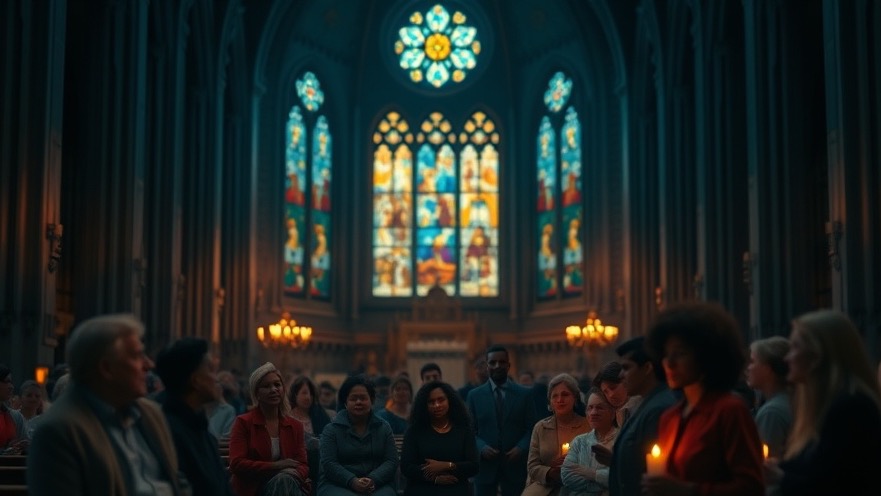
From Capitol Services to Christian Influence
The recent video, Church Services in the Capitol, by Dutch Sheets shines a light on a topic often cloaked in controversy: the role of faith within the framework of governmental affairs. Sheets calls out a phenomenon that seems all too common today: the stigmatization of patriotic Christians as 'Christian nationalists.' Fundamental to his message is the assertion that intertwining politics, education, and faith isn't merely beneficial but necessary for the soulful revival of our nation.
In Church Services in the Capitol, Dutch Sheets shares compelling insights on the intersection of faith and societal engagement, prompting deeper reflection on our role as Christians in today’s world.
Why Should Churches Engage with Cultural Issues?
Many voices within the church maintain that spiritual leaders should abstain from societal dialogues, fearing that such discussions muddy the sanctity of worship. Yet, Sheets emphasizes the opposite, revealing that the central figures of Christian heritage, such as Charlie Kirk, shaped their mission fields through a fusion of faith and culture. Polls indicate that a significant majority of congregants wish for sermons to address hot-button issues, from abortion to socioeconomic challenges. This desire reflects a yearning for comprehensive biblical teaching, not just a sanctuary from the complexities of modern life.
Hidden History: Church Services in Government Buildings
One of Sheets' poignant revelations is the historical practice of church services being hosted in governmental venues such as the Capitol. This is not merely an anecdote; it showcases a foundational integration of faith into public life. Figures like Thomas Jefferson not just coined the phrase 'wall of separation' but actively participated in the Christian communal life of governance. Such moments are often lost in contemporary education, which neglects the congruence of Christ with America’s founding. Recalling these histories can reframe public conversations about faith’s role in governmental affairs.
The Call for Leadership in Faith
Sheets draws upon a survey that surveyed congregants and pastors alike on the desire for cultural sermons. With staggering figures—91% wanting teachings on abortion and 85% expressing interest in social responsibilities—it's clear that this is not a simple matter of personal preference but rather a deep spiritual inquiry. The disconnect between congregants’ desires and pastors' reticence poses a challenge for societal growth and Christian witness. What's preventing spiritual leaders from stepping into this much-needed role?
Embracing the Revival Spirit
In today's climate, many Christians feel the need for a shift—a revival. As Sheets passionately prays for America’s redemption and the resurrection of foundational truths, he ignites a vision of hope. The resurgence of Christian teachings on campuses and public spheres can be seen as a 'turnaround comparable to the great restorations of Israel.' This idea motivates believers to believe in the transformative power of prayer and action in our present-day struggles.
As we reflect on Sheets' message, we are called to rekindle our commitment to influencing culture through faith. With each gathering, whether in holy sanctuaries or legislative spaces, believers can champion a return to the core principles that birthed this nation, integrating Christ into every facet of life.
In summary, the dialogue around church involvement in societal matters is more than political; it is spiritual. Those who seek to grow in their understanding of faith’s relevance in contemporary issues must not only engage with these challenging topics but also equip themselves to speak boldly. Join the movement of believers who refuse to stay silent—take time to pray, reflect, and act on the insights shared in Sheets' powerful message.
 Add Row
Add Row  Add
Add 




Write A Comment